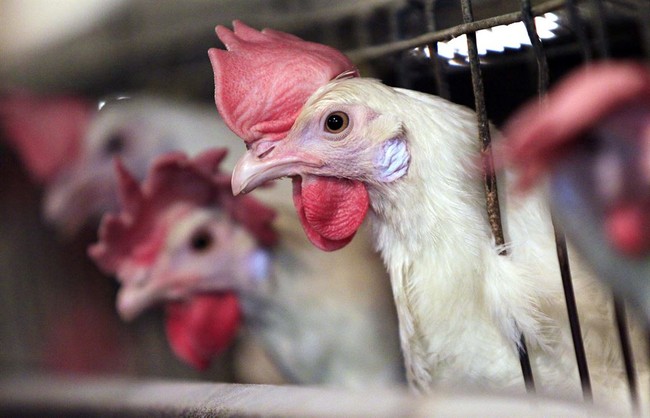
A Biden administration grand scheme to inject competition into the meatpacking industry has left an Iowa chicken ranch in bankruptcy and the landscape littered with 1.3 million state-euthanized chicken carcasses. Minnesota-based Pure Prairie Poultry, the recipient of a $6.9 million grant and a $38.7 million USDA-guaranteed loan declared Chapter 11 bankruptcy in September, citing higher-than-expected costs and lower-than-expected poultry prices. It notified Iowa that it could no longer afford to feed its chickens and had stopped doing so at least two weeks earlier. One subcontractor said, “The chickens would swarm around her, pecking at her legs in hunger.”
Like so many disasters, this started out with a great idea proposed by the venture Marxists who grift their way to the top of most federal agencies.
The Biden administration in 2021 unveiled an initiative to kick-start smaller meatpackers and help the U.S. food system avoid supply shocks such as those during the Covid-19 pandemic, when shutdowns of meat plants backed up livestock on farms and prompted some farmers to euthanize animals.
If, in the words of the prophetic James Carville, you “drag a hundred-dollar bill through a trailer park, you never know what you’ll find,” then you can imagine the effect of $325 million in grants and $700 million in federally secured loans had on the meatpacking industry. It increased everything except production and market share.
This project has sad echoes throughout the economy.
The Bipartisan Infrastructure Law, which Biden signed in November 2021, included $7.5 billion for EV charging. Of that, $5 billion was allocated to individual states in so-called “formula funding” to build a network of fast chargers along major highways in the National Electric Vehicle Infrastructure, or NEVI, program.
But after two years, that program has only delivered seven open charging stations with a total of 38 spots where drivers can charge their vehicles, according to a spokesperson for the Federal Highway Administration. (The funding should be enough to build up to 20,000 charging spots or around 5,000 stations, according to analysis from the EV policy analyst group Atlas Public Policy.) Stations are open in Hawaii, New York, Ohio and Pennsylvania and under construction in four other states.
The same fate that the bizarre charging stations project suffered also befell the grand scheme to provide broadband internet connections to rural areas.
Contained within the 2021 infrastructure bill, the Broadband Equity Access and Deployment (BEAD) program authorized more than $42 billion in grants, to “connect everyone in America to reliable, affordable high-speed internet by the end of the decade.”
“In 2021, the Biden Administration got $42.45 billion from Congress to deploy high-speed Internet to millions of Americans,” Brendan Carr, the senior Republican commissioner of the Federal Communications Commission (FCC), wrote in a post on X (formerly Twitter) this month. “Years later, it has not connected even 1 person with those funds. In fact, it now says that no construction projects will even start until 2025 at earliest.”
The internet issue is made all the more pathetic by what seems like a purely political denial of Elon Musk’s Starlink’s proposal to deliver high-speed broadband to nearly 643,000 homes and businesses in 35 states.
The $5 billion “Electric School Bus Program,” which was to cover “389 school districts across all 50 states to help deliver a total of 2,463 electric school buses,” has produced just 60 vehicles.
Over and over, the Biden-Harris administration showed itself inept, corrupt, and incompetent in everything it tried to accomplish. They can’t go away into oblivion soon enough for me. Just by getting the US government out of the business of interfering with our economy, Trump could save a ton of money, eliminate that part of the bureaucracy that imagines itself to be latter-day industrial tycoons, and make everyone much happier.
